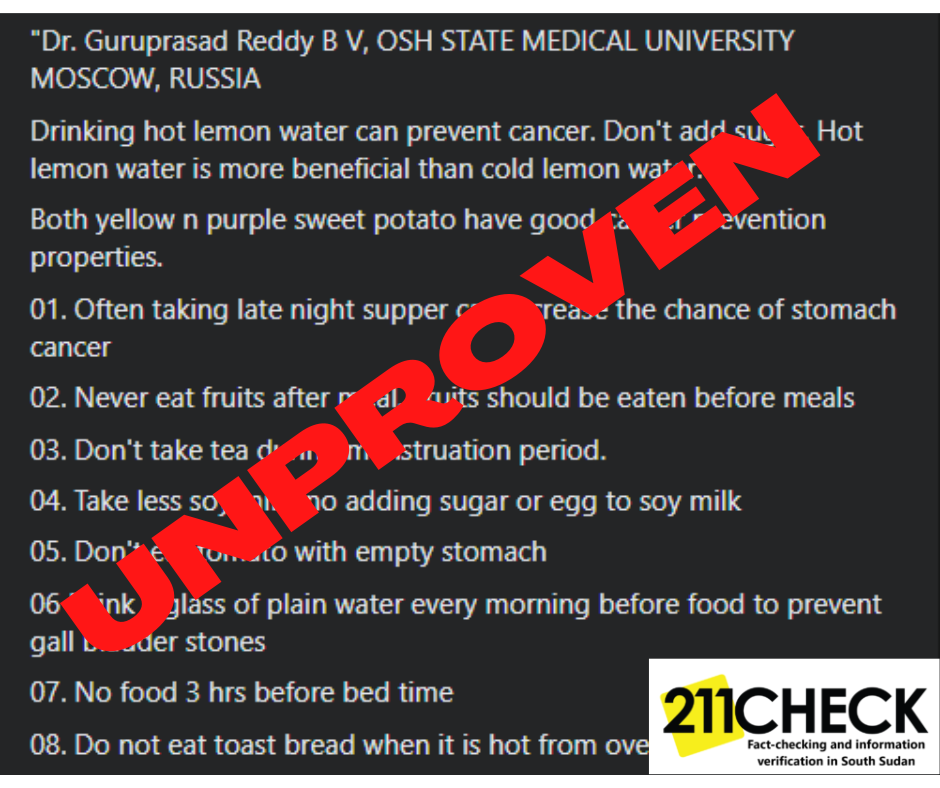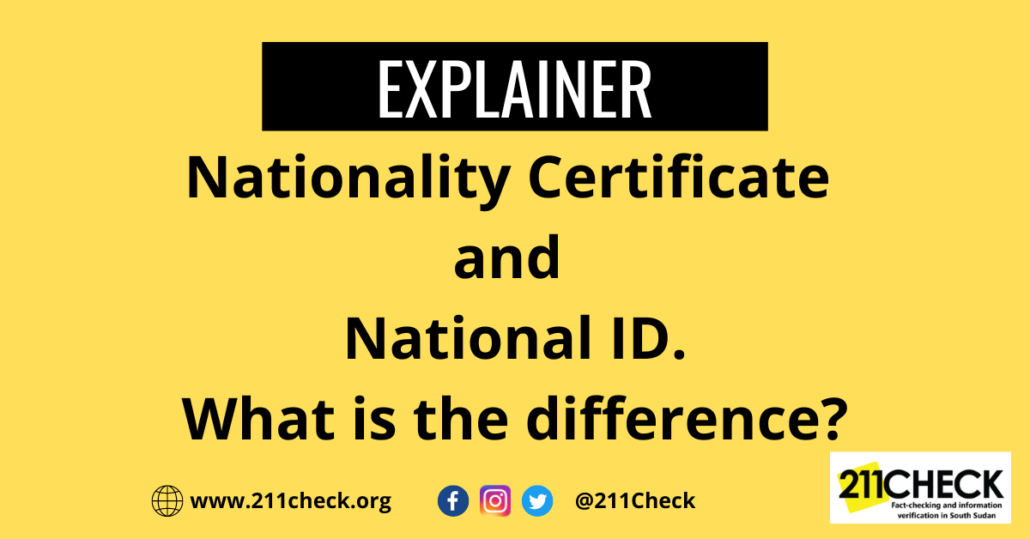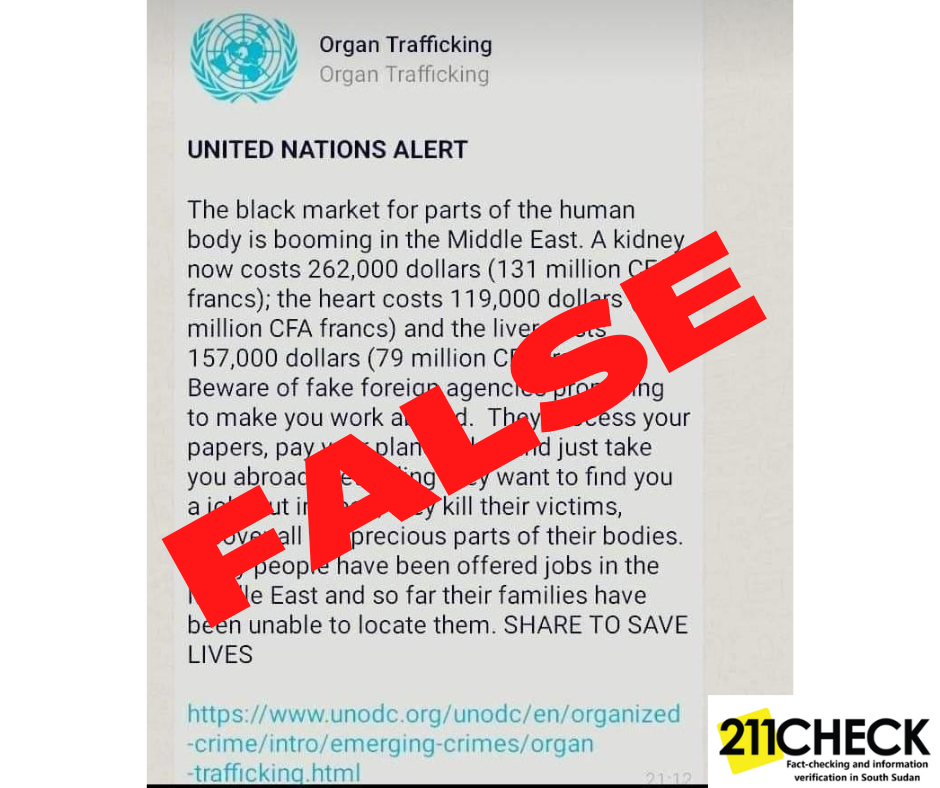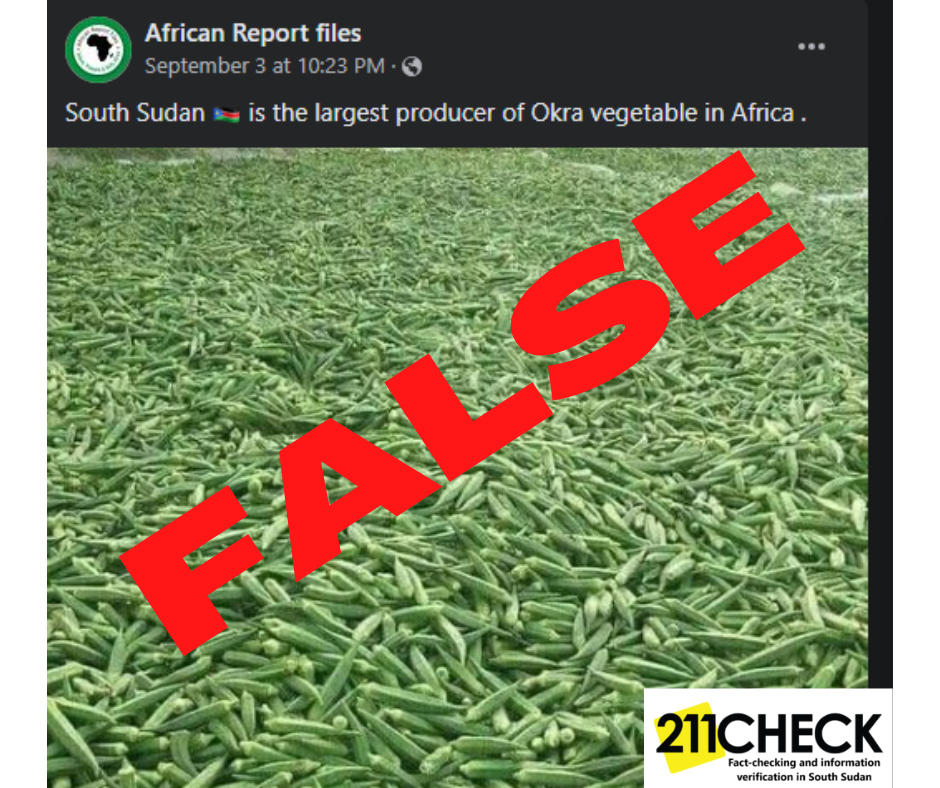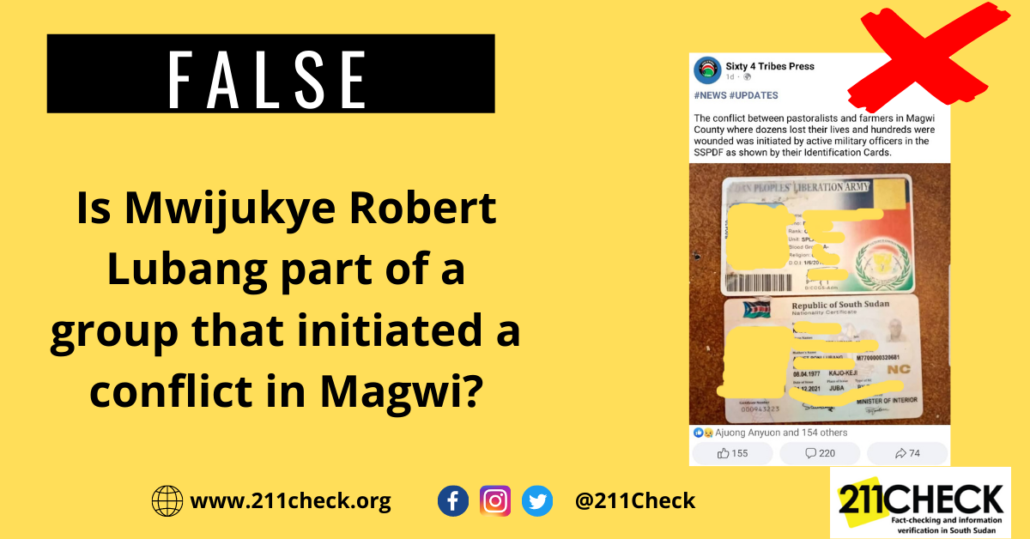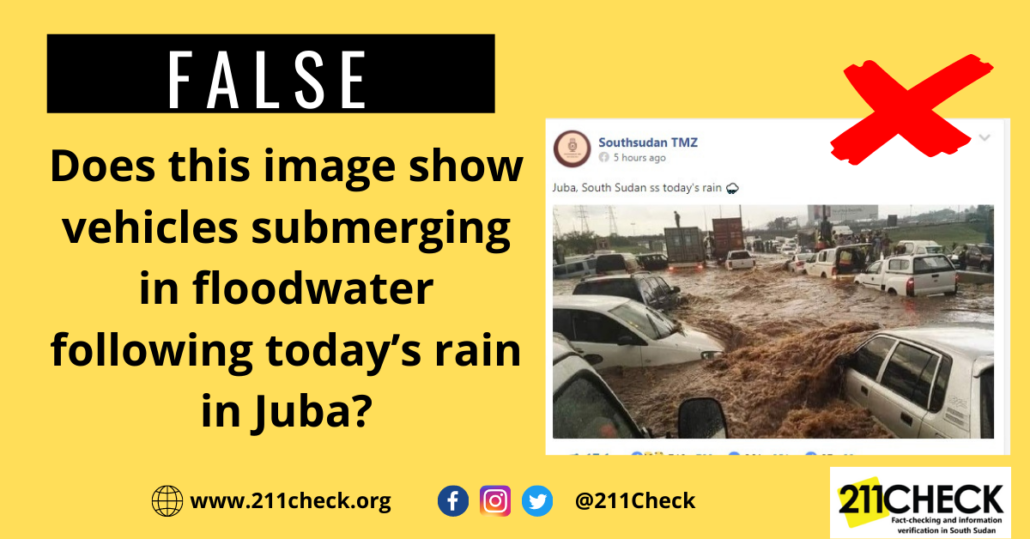Fact-check: Can drinking hot lemon water cure cancer? Not scientifically proven
Writer: Ochaya Jackson
A widely circulated WhatsApp message claiming that drinking hot lemon water can cure cancer is false.
The message, which warns people against using conventional cancer treatments and claims that mixing lemon fruit with hot water “is 1,000 times better than chemotherapy,” was attributed to Dr. Guru Prasad Reddy BV, who claimed to be a professor at Osh State Medical University in Moscow, Russia.
Screenshot of the claim posted on Facebook
“Screening will not and cannot lower the cancer cases. There are very many people who are going to India. A friend who has been going to India for the last three years because of cancer told me 50% of people in the cancer clinics in India are usually Africans (Kenya/Uganda) etc. Sadly, many don’t make it even after these treatments, this is the bit that we are never told,” reads part of the message on social media.
“Blend a whole lemon fruit with a cup of hot water and drink it for about 1-3 months first thing before food and cancer would disappear, research by Maryland College of Medicine says, it’s 1000 times better than chemotherapy”, the message adds.
Is this true? 211 Check investigates the claims made in the WhatsApp message:
211 Check established that Dr. Guru Prasad Reddy is a specialist in plastic surgery at Apollo Spectra Hospitals, Hyderabad-Kondapur in India, not professor at Osh State Medical University in Russia.
And Osh State Medical University is a public University in Kyrgyzstan not in Moscow-Russia as claimed. The link is here
And 211 Check found no publicly available research published about lemon treating cancer by University of Maryland, College of Medicine. And lemon is not even in clinical trials as a medicine for cancer at the University.
In 2017, the claim was posted on a Facebook page by Home Ayurvedic remedied which garnered 102 comments, and 280 shares was also referenced to have been written by Dr. Guru Prasad Reddy. The link is here
The same message was also shared many years back and attributed to several doctors from different countries and institutions which some of them debunked as fake and said the claim was completely false.
AFP published a fact-check in August 2021 on the same claim as false which at that time was attributed to Chief Executive Professor Chen Horin from Beijing Military Hospital who according to AFP the professor was faked.
“This matter is very important..…lemon slices in a glass of hot water can save you for the rest of your life. Hot lemon water kills cancer cells. Cut a lemon into three pieces and put them in a cup. Then pour hot water in it. It’s done (alkaline water). Drinking it on a daily basis will give special benefits”, AFP quoted a post on Facebook in 2018 which was shared 125,000 times as said by Professor Chen Horin.
However, AFP found out that the real chief physician Chen Huiren at Beijing Military Hospital name was the one faked in the claim, not Horin.
A cancer specialist at Bangladesh Cancer Society Hospital, Prof Dr Golam Mohiuddin Faruque, who was quoted by AFP said the claim was a hoax but said lemon can prevent some types of cancer however, not cure.
“No one can say hot lemon water…..can cure cancer and such claims have no scientific basis. There are different types of cancers and many of these have their own ways of treatment but drinking hot lemon water is definitely not among them. Citrus fruits including lemon sometimes can have some positive impact in preventing certain types of cancers but that’s not a treatment.” he was quoted as saying by AFP.
Scientific facts:
The lemon cure claim for cancer has been also disputed by the National Center for Health Research as untrue after modified citrus pectin – a carbohydrate in the peels of citrus fruits studied with humans’ prostate cancer was unsuccessful.
And it said limonoids chemical found in citrus peels has proved ineffective in preventing cancer in human beings.
Dr. Manish Singhal termed the claim as myth but it is a good idea to have lemon either in hot or cold water because it will keep one very hydrated by washing toxins and acids in the stomach. However, thinking that it can cure cancer is not true.
Cancer Research UK in 2013 has also clarified that “there’s no scientific evidence to show that lemon juice can cure cancer, despite what is on the internet”.
And the U.S. National Centre for Health Research, “lemons are not a “proven remedy against cancers of all types,” and no studies have ever been done that would compare the effectiveness of a lemon to chemotherapy.”
There is currently no World Health Organization (WHO) factsheet on lemon curing cancer in patients, and what is circulating on the internet about lemon hot water curing cancer remains just a hypothesis not scientifically proven.
Conclusion:
211 Check investigated posts on lemon hot water curing cancer that have been going on for years in various platforms, with others claiming that the lemon is 10,000, 10, and 1,000 times more effective than chemotherapy are unproven. And because no scientific studies have proven the claim to be true, it remains a health myth.

